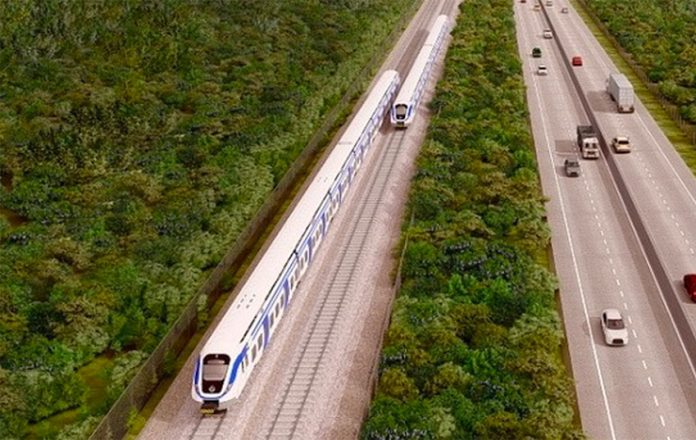A federal court has revoked a provisional suspension order that stopped construction of the Maya Train project in Chiapas due to coronavirus concerns.
Judges of a Tuxtla Gutiérrez-based administrative court unanimously agreed to annul the suspension order granted earlier this month to a group of Maya Ch’ol people from the municipalities of Palenque, Ocosingo and Salto de Agua.
The indigenous residents argued that construction of the rail project during the coronavirus crisis would violate their constitutional right to health protection because it could increase their risk of being exposed to Covid-19.
But the National Tourism Promotion Fund (Fonatur), which is managing the 1,500-kilometer Maya Train project, launched a challenge against the suspension order, arguing that construction could not be stopped because it has been declared an essential activity.
The federal court upheld the challenge, noting that construction as well as mining and the manufacture of transportation equipment were officially declared essential activities on May 13.
The judges said that there was no imminent risk that local residents’ exposure to Covid-19 will increase, stating that large groups of construction workers are unlikely to be sent to Chiapas because the rail project will largely make use of existing tracks.
Despite the court’s revocation, there is still a glimmer of hope for the indigenous plaintiffs because a hearing is yet to be held to determine whether a definitive suspension order will be granted against the US $8-billion project, one of the government’s signature infrastructure projects.
Fonatur has already awarded contracts to build three sections of the railroad, including one to a consortium controlled by billionaire businessman Carlos Slim.
President López Obador says that the project will act as a trigger for social and economic development in Mexico’s southeast, where poverty levels are higher than central and northern states.
That claim has now been supported by UN Habitat, the United Nations Human Settlement Program.
It conducted an analysis of the project and predicted that it will create almost one million jobs over the next 10 years.
“Thanks to the Maya Train, UN Habitat estimates that between now and the year 2030, 715,000 jobs will be created in the 16 municipalities with a train station, 150,000 jobs will be created in the rural economy associated with the train and 80,000 jobs will be created through the construction work on the first five sections [of the railroad] in 2020,” it said.
Almost half of the new jobs in the five states through which the train will run – Tabasco, Campeche, Yucatán, Quintana Roo and Chiapas – will go to indigenous people, UN Habitat predicted.
It also predicted that the rail project will trigger a near doubling of economic growth in the areas through which it will pass.
“If the train didn’t exist,” local economies would grow by 0.84%, or 1.5 billion pesos, UN Habitat said without specifying the period to which it was referring. With the train, the growth will be 1.59%, or 2.1 billion pesos, the report said.
UN Habitat added that the Maya Train will help to lift 1.1 million people out of poverty.
“By the year 2030, [the number of] people in situations of poverty will have decreased by 15% thanks to the economic impact of the Maya Train in the southeast region. The population will increase from 12.1 million currently to 17.3 million people. Of that number, 6.1 million will be in situations of poverty. If the Maya Train didn’t exist, the figure would increase to 7.2 million.”
The train is scheduled to start running in 2023.
Source: Milenio (sp)
